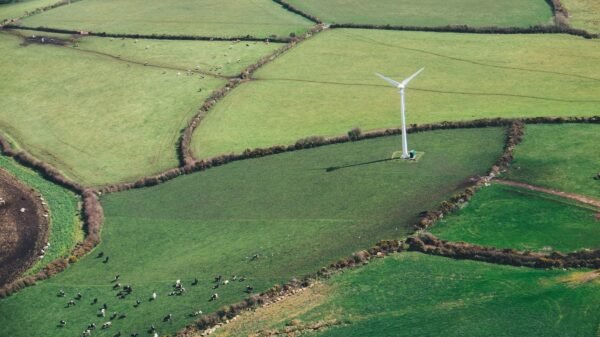Exploring the Link Between Fintech and Sustainable Development
Discover how fintech can drive sustainable development. Learn how financial technology is empowering sustainable businesses, promoting financial inclusion, and supporting a low-carbon economy.
KEY TAKEAWAYS
- Fintech (financial technology) can play a significant role in advancing sustainable development goals, including poverty reduction, economic growth, and environmental sustainability.
- Fintech offers new solutions to traditional financial challenges and can help to extend access to financial services to underserved populations.
- Digital financial services can reduce the costs and time associated with traditional financial transactions, increasing efficiency and reducing waste.
- Fintech can facilitate the deployment of innovative financing mechanisms, such as crowdfunding and peer-to-peer lending, which can support sustainable businesses and initiatives.
- Fintech can also enable new forms of data collection and analysis, which can improve decision-making and support sustainable development efforts.
Financial technology, commonly referred to as fintech, has revolutionized how financial services are provided and accessed, empowering individuals and businesses with greater convenience, efficiency, and access to capital. As the world faces increasing environmental and social challenges, the role of fintech in promoting sustainable development has become increasingly crucial. Fintech solutions are uniquely positioned to drive sustainable development, enabling greater financial inclusion, promoting sustainable business practices, and facilitating the transition to a low-carbon economy. This article will explore the intersection of fintech and sustainable development, highlighting some of the key ways in which financial technology can be leveraged to create a more sustainable and equitable future.
Fintech and Sustainable Development
Fintech, or financial technology, is increasingly being used to drive sustainable development. By leveraging the latest technologies and data, fintech can help to close the global development gap and ensure that everyone has access to the financial services they need to improve their lives. From mobile banking to carbon offset solutions, fintech can play a significant role in improving the sustainability of the global economy.
Overview of Fintech’s Potential for Sustainable Development
Fintech has the potential to revolutionize the way you finance and manage the global economy. By leveraging the latest technologies and data, fintech can help to close the global development gap and ensure that everyone has access to the financial services they need to improve their lives. Fintech can also help to reduce the environmental impacts of economic activity by offering more efficient and sustainable solutions.
Examples of Fintech Applications in Sustainable Development
Fintech can facilitate access to financial services for all, including those in developing countries who may not have access to traditional banking services. By providing banking, payments, and other financial services, fintech can help to reduce poverty and inequality, as well as drive economic growth in developing countries.
Fintech for Financial Inclusion
Fintech is being used to expand access to financial services, particularly in developing countries. Mobile banking and payment solutions are being used to provide access to banking services for those who may not have access to traditional banking services. Additionally, microfinance and crowdfunding platforms are providing access to financing to those who may not be able to access traditional forms of financing. These platforms are also providing access to capital to small businesses and entrepreneurs, helping to drive economic growth and reduce poverty.
Mobile Banking and Payment Solutions
Mobile banking and payment solutions are increasingly being used to provide access to banking services for those who may not have access to traditional banking services. These solutions allow users to open bank accounts, transfer funds, and access other financial services from their mobile devices. This has enabled individuals around the world to access banking services and make payments without having to physically go to a bank branch.
Microfinance and Crowdfunding Platforms
Microfinance and crowdfunding platforms are providing access to capital to those who may not be able to access traditional forms of financing. These platforms are helping to drive economic growth and reduce poverty by providing access to capital to entrepreneurs and small businesses. They are also allowing individuals to invest in projects that have a positive social and environmental impact.
Fintech for Climate Action
Fintech is being used to address climate change by providing solutions for monitoring and offsetting carbon emissions. Additionally, sustainable investment and trading platforms are being used to facilitate investments in green technologies and other climate action initiatives.
Carbon Footprint Monitoring and Offset Solutions
Fintech is being used to provide solutions for monitoring and offsetting carbon emissions. These solutions allow companies and individuals to track and monitor their carbon footprint, as well as offset their emissions through investments in green projects and technologies. This helps to reduce the environmental impact of economic activity and drive sustainable development.
Sustainable Investment and Trading Platforms
Sustainable investment and trading platforms are being used to facilitate investments in green technologies and other climate action initiatives. These platforms allow investors to invest in green projects and technologies, helping to drive sustainable development. They are also being used to facilitate the trading of carbon credits, enabling companies to offset their emissions by investing in green projects.
Fintech for Social Impact
Fintech is also being used to help improve social outcomes by providing solutions for digital identity, social services delivery, and impact investing.
Digital Identity and Social Services Delivery
Fintech is being used to provide digital identity solutions, which enable individuals to access social services and other benefits. This can help to reduce poverty and inequality by ensuring that individuals can access the services they need. Additionally, social services delivery platforms are being used to provide access to services such as healthcare and education, helping to drive sustainable development.
Philanthropic and Impact Investing Platforms
Philanthropic and impact investing platforms are being used to facilitate investments in projects with a positive social and environmental impact. These platforms enable investors to invest in projects that have a positive impact on society and the environment, helping to drive sustainable development.
Regulatory and Policy Challenges
The development and growth of Fintech are creating regulatory and policy challenges for governments and other stakeholders. One of the most pressing issues is the digital divide and inequality concerns that arise from unequal access to financial technology. The digital divide is a major obstacle to achieving sustainable development and must be addressed if Fintech is to be used effectively.
Digital Divide and Inequality Concerns
The digital divide is the gap between those who have access to digital technologies and those who do not. This divide can lead to unequal access to financial services, with those without access to technology being left behind. This can lead to a widening of the wealth gap and further exacerbate poverty and inequality. To ensure that Fintech is used to promote sustainable development, governments must take steps to ensure that everyone has access to the technology and services necessary to benefit from it.
Cybersecurity and Data Privacy Risks
The rapid growth of Fintech has also raised concerns about cybersecurity and data privacy. As the sector grows, the potential for cyber-attacks and data breaches increases. As a result, governments and other stakeholders must take steps to protect data and ensure that customers’ privacy is respected.
Ethical Considerations
The development of Fintech also raises some ethical considerations that must be taken into account. One of the most pressing issues is the potential for AI and algorithmic bias to be used to discriminate against certain groups. This is a particular concern for those who are already disadvantaged and vulnerable, as it could lead to further exclusion and inequality. To ensure that Fintech is used responsibly and ethically, governments and other stakeholders must take steps to ensure that the technology is not used to discriminate against certain groups.
AI and Algorithmic Bias
AI and algorithmic bias refer to the potential for technology to discriminate against certain groups of people. For example, AI-powered credit scoring algorithms could be biased against certain groups, leading to unfair decisions. To ensure that Fintech is used responsibly and ethically, governments must ensure that AI and algorithmic bias is minimized. This will require the development of robust regulations to ensure that these biases are eliminated.
Responsible Use of Data and Technology
The responsible use of data and technology is essential for the development of Fintech. As the sector grows, governments and other stakeholders must ensure that data is collected responsibly and used to benefit the public. This will require the development of policies and regulations to ensure that data is collected, stored, and used ethically. Furthermore, it will be essential to ensure that technology is used to promote sustainable development and not to exploit vulnerable populations.
Case Studies of Fintech and Sustainable Development
Fintech and sustainable development are two topics that, when combined, can have a profound effect on the economic and environmental well-being of a region. Fintech, or financial technology, is the use of technology to improve financial services, while sustainable development is a strategy that focuses on meeting the needs of the present without compromising the ability of future generations to meet their own needs. This article explores three real-world scenarios where fintech has been used to promote sustainable development, including M-Pesa in Kenya, CarbonCure, and Kiva.
M-Pesa in Kenya: Enabling Financial Inclusion
M-Pesa is a mobile money transfer and payment system developed by Vodafone and launched in Kenya in 2007. Its goal is to provide financial inclusion to the unbanked, allowing them to access basic banking services from their mobile phones. M-Pesa has had a significant impact in Kenya, reducing the cost of transferring money, increasing access to financial services, and reducing poverty. A 2016 study found that the system had enabled more than 120 million people to access financial services, with a dramatic increase in access to credit, savings, and insurance. M-Pesa has also enabled sustainable development in Kenya by providing access to resources and opportunities which were previously unavailable.
CarbonCure: Reducing CO2 Emissions in Construction
CarbonCure is a Canadian company that has developed a technology that captures CO2 from the atmosphere and injects it into concrete during the mixing process. The CO2 is converted into a mineral in the concrete, resulting in a stronger and more durable product. CarbonCure has been adopted by over 400 concrete producers in North America, and the technology is estimated to have reduced over 800,000 tonnes of CO2 emissions. CarbonCure has enabled sustainable development by reducing carbon emissions in the construction industry, and by providing an economically viable solution to mitigate climate change.
Kiva: Empowering Micro-Entrepreneurs Around the World
Kiva is a non-profit organization that provides microloans to entrepreneurs in over 80 countries around the world. Kiva loans are crowdfunded by individual lenders, who receive repayments with interest. Kiva has enabled sustainable development by providing access to capital for entrepreneurs who otherwise would not have access to traditional financing. Kiva’s loans have enabled millions of entrepreneurs to start or expand their businesses, creating jobs, increasing incomes, and reducing poverty.
Fintech has enabled sustainable development in a variety of ways, from providing financial inclusion to reducing carbon emissions. The three case studies discussed in this article demonstrate how fintech can be used to promote a more sustainable and equitable world.
Final Thoughts
Fintech has immense potential to advance sustainable development, offering innovative solutions to some of the world’s most pressing environmental and social challenges. By leveraging fintech solutions, you can create a more inclusive and sustainable financial system, supporting sustainable businesses, and enabling the transition to a low-carbon economy. However, to fully realize the potential of fintech in promoting sustainable development, it is crucial to ensure that these solutions are developed and deployed responsibly and ethically, prioritizing the well-being of people and the planet above short-term profits. With the right policies, regulations, and collaborations, you can harness the power of fintech to create a more sustainable and equitable future for all. With continuing innovations and developments of new fintech solutions, you should keep in mind the importance of sustainability and work together to build a brighter future for generations to come.




































Comment Template